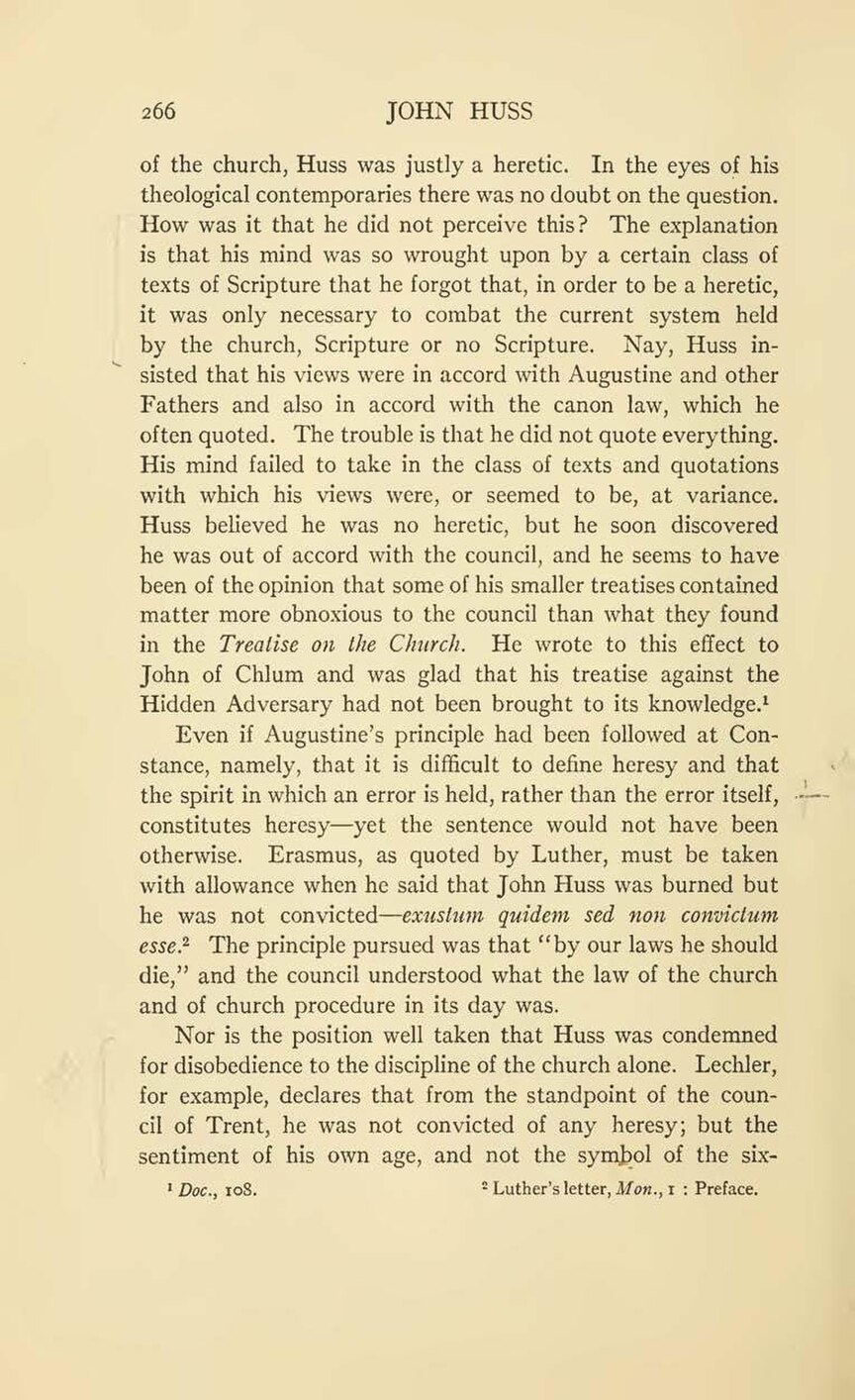of the church, Huss was justly a heretic. In the eyes of his theological contemporaries there was no doubt on the question. How was it that he did not perceive this? The explanation is that his mind was so wrought upon by a certain class of texts of Scripture that he forgot that, in order to be a heretic, it was only necessary to combat the current system held by the church. Scripture or no Scripture. Nay, Huss insisted that his views were in accord with Augustine and other Fathers and also in accord with the canon law, which he often quoted. The trouble is that he did not quote everything. His mind failed to take in the class of texts and quotations with which his views were, or seemed to be, at variance. Huss believed he was no heretic, but he soon discovered he was out of accord with the council, and he seems to have been of the opinion that some of his smaller treatises contained matter more obnoxious to the council than what they found in the Treatise on the Church. He wrote to this effect to John of Chlum and was glad that his treatise against the Hidden Adversary had not been brought to its knowledge.[1] Even if Augustine’s principle had been followed at Constance, namely, that it is difficult to define heresy and that the spirit in which an error is held, rather than the error itself, constitutes heresy—yet the sentence would not have been otherwise. Erasmus, as quoted by Luther, must be taken with allowance when he said that John Huss was burned but he was not convicted—exustum quidem sed non convictum esse.[2] The principle pursued was that “by our laws he should die,” and the council understood what the law of the church and of church procedure in its day was.
Nor is the position well taken that Huss was condemned for disobedience to the discipline of the church alone. Lechler, for example, declares that from the standpoint of the council of Trent, he was not convicted of any heresy; but the sentiment of his own age, and not the symbol of the six-
